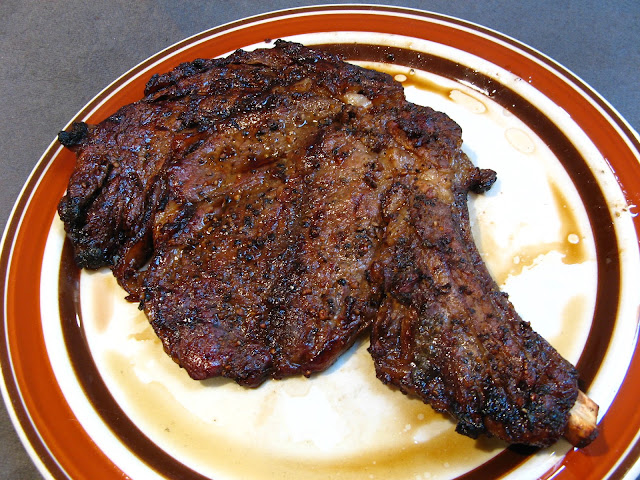This recipe is loaded with lots of seafood and is a special
occasion type dish. I was able to get sliced abalone at my local Asian market.
Usually fresh (or thawed) abalone is very hard to find where I live (it’s
usually only available frozen or dried), so I took the opportunity to use it in
this dish. Since abalone becomes tough if cooked too long, the abalone is added
at the last minute just to warm it in order to keep it tender.
Dried scallops are another luxurious (i.e. expensive)
ingredient that is necessary to the flavor to this dish. In general, the larger
the dried scallop, the more expensive the scallop. You only need to use one or
two large dried scallops to flavor this dish. The dried scallop is first rehydrated
and then broken into pieces. You need a large dried scallop to get the large rehydrated
pieces.
Fish maw is the bladder of the fish that controls buoyancy.
Fish maw is one of those weird and wonderful special banquet ingredients (at
least in my experience) that is served at auspicious events such as weddings
and at Lunar New Year. Fish maw can be purchased at your local Asian market or
herb specialty store. If you’re lucky enough to have an Asian herb store near
you, it’s worth going in to see all the dried herbs and creatures that are sold
at these stores. The herb stores also have the most variety of fish maw to buy
and with the prices to match!
There are two types of fish maw: dried and fried. For this dish,
the fried version is used. If you purchase the dried version, like I did,
there’s an extra step to deep fry the fish maw yourself. I actually shallow
fried the fish maw, ladling hot oil over the fish maw (be careful when using
this method). You can save a step and time by buying the fried version, however
it is easier to store the dried version since it takes up less space than the
fried. The best description of fried fish maw is that it looks like chicharrón,
which is fried pork skin. The fried fish maw must soak in cold water for at
least an hour to soften it to a spongy texture and then cut into bite sized
pieces. After soaking, fish maw has no inherent flavor (so it won’t smell fishy
at all) and acquires the flavors of the ingredients it is cooked with. So using
good ingredients is important to the flavor of this dish.
Enjoy!






